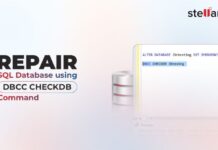In every industry, data science allows organizations to make better-informed decisions that are conducive to success and growth. Believe it or not, non-profits can benefit from data science by harnessing this power to optimize their operations in numerous ways.
Such information can help:
- Track the number of donors
- The amount of donations being made on a regular basis (i.e. monthly, yearly, etc.)
- Social media shares, etc.
Unfortunately, some organizations don’t know about this technological miracle. In fact, some lack access to big data, due to the following possible issues:
- The use of outdated technology
- Lack of awareness
- Budgetary limitation
- One or more employees or of management not comfortable about adapting to new things, etc.
The good news is, this overview will delve into non-profits, how they can succeed with data science, and if it’s necessary for all initiatives in the industry.
Do Non-profits Need It?
Non-profits would benefit from data science, but smaller-sized and newer companies lack the funds to access it. Although it’s not a necessity if a budget is already stretched, data is a worthy investment to consider as soon as funds are available.
Valuable information allows for optimizing fundraising efforts and minimize their spending. By streamlining various processes, the impact of efforts is maximized, which is a win-win for everyone involved.
While initiatives are not competing with other businesses for monetary gain, they must nonetheless find ways to stand out, in order for potential donors to notice them. Informational analysis provides companies with the tools and strategies to impress contributors and secure funding.
What Are The Advantages?
Data science offers non-profit organizations several advantages. This often includes the following benefits:
Fundraising
While non-profits are not motivated by money, they require funding to function. Information could help them secure valuable funding. Through its ability to streamline several processes and allocate resources wisely, information can demonstrate a non-profit’s ability to operate efficiently to key donors. Since operational efficiency is important to most donors, analytics can help organizations impress them and secure funding. Insights could also be used to identify potential donors and the most effective fundraising efforts.
Marketing
The success of marketing campaigns determines the effectiveness of fundraising efforts. The more effective the marketing campaigns, the more potential donors the company will be able to reach in due time.
“In the same way that crucial insights from data analysis allows for-profit businesses to successfully reach their target audience, it can help non-profits do the same,” according to Ronald McNair, a business writer at Paper Fellows and State of writing. “Analytics enable businesses to determine the effectiveness of their marketing campaigns and ways to continuously improve their efforts.”
Resource Allocation
One of the biggest advantages is its financial implications. Informational analytics can help initiatives make smarter financial decisions, such as planning their budgets, allocating resources, and reducing expenses. Through better financial planning and optimized processes, knowledge from data science ensures cost-efficient operations, just a way they can benefit from data science.
Better Implementation
Non-profits can identify inefficient processes in their operations and ways to streamline those processes. This decreases the costs of operations and eliminates drains on limited financial resources.
“Data science enables organizations to ensure their help reaches those who need it most,” explains Sandra Ames, a project manager at Boomessays and Essay Roo. “By offering insights into how to improve operations as a non-profit, data analysis can maximize their impact on those they aim to support.”
With budgeting the most crucial part of any initiative, it’s important to keep track of how donations and contributions are being used.
Accountability
Finally, the transparency of operations is essential to the way a non-profit operates. When people donate to your cause, they want to be ensured that their contributions are being sent to the right places and resources.
Organizations examine the impact of their efforts and report these insights to their donors. The ability to measure their performance can help initiatives recognize rooms for improvement in their current efforts as well.
Conclusion
Ultimately, all initiatives should definitely consider investing in data science. The potential benefits offer tremendous returns for companies and their operations.
While a non-profit organization can possibly make due without it, it can benefit from data science. Also, the information can still help them secure valuable funding, and even optimize their impact on those they seek to help. We hope that this overview helps you to better promote and spread your cause!
















